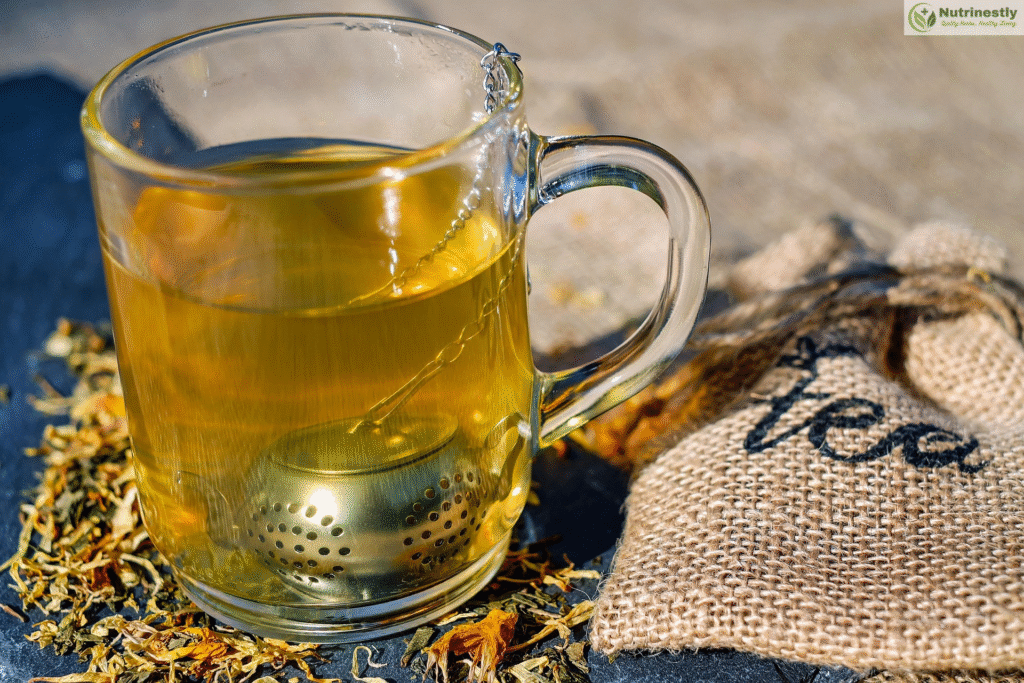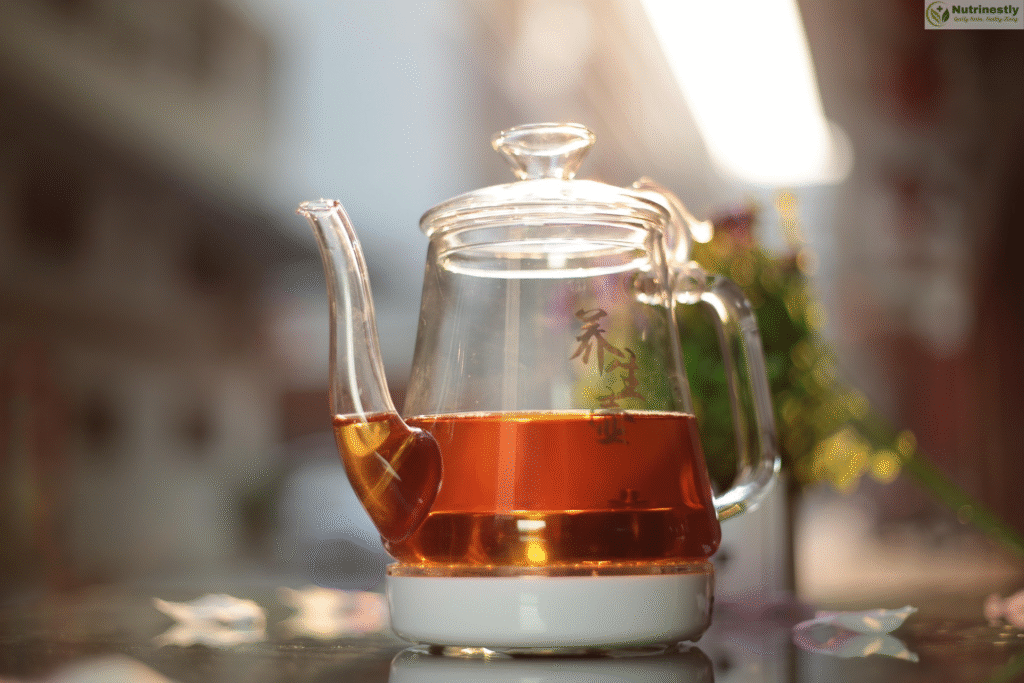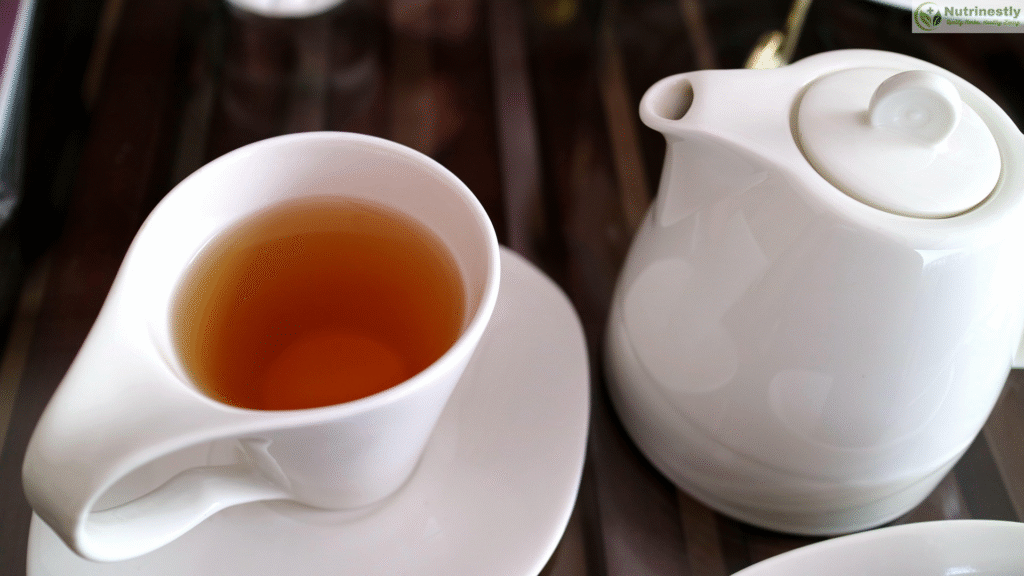

A Cup of Choice: Green Tea or Black Tea?
Suppose you’re sitting on a peaceful morning, holding a hot cup of tea with your hands encircling it. The steam rises, the scent wafts through, and for a fleeting instant, all feels quiet and peaceful. It’s one of those moments of quiet pleasure that roots you. So, the question is, what’s in the cup, green tea or black tea??
Both forms of tea enjoy rich cultural histories and loyal supporters worldwide. But aside from flavor and heritage, there’s an entire universe of health benefits secreted in the leaves. Whatever your quest—improved concentration, a more powerful immune system, or simply a healthier daily practice—this primer will assist you in determining whether tea is the better choice for you.
1. Understanding the Basics: Green Tea or Black Tea
Before diving into their health benefits, it’s essential to understand how green and black teas differ in their production and chemical composition.
Same Plant, Different Processing
- Black tea, on the other hand, is fully oxidized. The leaves are allowed to wither, roll, and oxidize before being dried, resulting in a darker color and more robust flavor.
- Green tea is quickly steamed or pan-fired after harvesting to prevent oxidation. This preserves its green color and delicate flavor.
Flavor Profiles
- Green tea is often described as grassy, sweet, or slightly bitter.
- Black tea tends to be bolder and more astringent, with malty, smoky, or earthy notes.
Caffeine Content
- Green tea typically contains 25–35 mg of caffeine per cup.
- Black tea contains more, ranging from 40–70 mg per cup.
2. Nutritional Breakdown: What’s in Your Cup?
Here’s a side-by-side comparison of the key nutrients and compounds found in green and black tea:
| Nutrient/Compound | Green Tea | Black Tea |
|---|---|---|
| Caffeine | 25–35 mg/cup | 40–70 mg/cup |
| L-theanine | High | Moderate |
| Catechins (EGCG) | Very High | Lower (converted to theaflavins) |
| Theaflavins | Low | High |
| Calories | ~0 (unsweetened) | ~0 (unsweetened) |
- EGCG (epigallocatechin gallate) is a powerful antioxidant predominantly found in green tea.
- Theaflavins, abundant in black tea, also have strong antioxidant properties but differ in chemical structure.
- L-theanine, an amino acid, promotes calmness and mental clarity, synergizing with caffeine for a balanced energy boost
3. Health Benefits of Green Tea
Green tea has been extensively researched and is often lauded for its wide-ranging health benefits:
3.1. Weight Management and Metabolism
EGCG, the catechin in green tea, has been linked to increased fat oxidation and thermogenesis. Some studies suggest that green tea extract can enhance metabolic rate and aid weight loss when combined with exercise and a healthy diet.
3.2. Cardiovascular Health
Green tea consumption may help reduce LDL cholesterol levels, blood pressure, and triglycerides—factors that collectively improve heart health.
3.3. Brain Function and Cognitive Health
Thanks to its caffeine and L-theanine content, green tea improves alertness, focus, and memory while reducing anxiety. Some research even points to a reduced risk of Alzheimer’s and Parkinson’s disease among regular green tea drinkers.
3.4. Cancer Prevention Potential
Laboratory and animal studies have shown that green tea polyphenols can inhibit the growth of cancer cells. While human studies are inconclusive, there’s promising evidence for a protective effect against cancers of the breast, prostate, and colon.
3.5. Antimicrobial and Immune Support
Green tea exhibits antibacterial and antiviral properties, which may support the immune system and help ward off infections.
4. Health Benefits of Black Tea

Black tea also provides substantial health benefits, many of which parallel those of green tea:
4.1. Heart Health
Black tea is rich in theaflavins, which have been shown to reduce LDL cholesterol and improve endothelial function. Regular black tea consumption is associated with a reduced risk of heart disease and stroke.
4.2. Improved Gut Health
Polyphenols in black tea act as prebiotics, promoting the growth of beneficial gut bacteria. A healthy gut microbiome is linked to better digestion, immunity, and even mental health.
4.3. Enhanced Alertness and Mental Focus
Higher caffeine content makes black tea a better choice for those needing a strong mental boost. It enhances alertness and cognitive performance, especially in sleep-deprived individuals.
4.4. Antioxidant Protection
Theaflavins and thearubigins in black tea are potent antioxidants that fight oxidative stress and may lower inflammation markers.
4.5. Reduced Risk of Type 2 Diabetes
Some studies suggest black tea may help improve insulin sensitivity and lower blood sugar levels, although more research is needed.
5. Which One Is Healthier? It Depends on Your Goals
Which tea is better for you? Here’s how to decide:
| Health Goal | Best Tea Choice | Why |
|---|---|---|
| Weight loss | Green Tea | EGCG boosts fat oxidation and metabolism |
| Mental focus | Black Tea | Higher caffeine for alertness |
| Stress and anxiety relief | Green Tea | High L-theanine for calming effect |
| Heart health | Both (Slight edge: Black) | Antioxidants lower cholesterol and BP |
| Gut health | Black Tea | Polyphenols act as prebiotics |
| Lower caffeine intake | Green Tea | Contains less caffeine |
6. Brewing and Consumption Tips
6.1. Brewing Temperature and Time
- Green Tea: Steep at 160–180°F (70–80°C) for 2–3 minutes. Hotter water can cause bitterness.
- Black Tea: Steep at 200–212°F (93–100°C) for 3–5 minutes.
6.2. Additives and Enhancers
- Avoid added sugars and artificial sweeteners.
- Enhance flavor with natural ingredients: lemon, ginger, mint, or cinnamon.
- For green tea, matcha offers concentrated nutrients and a unique experience.
6.3. When to Drink

- Green tea is great in the morning or mid-afternoon.
- Black tea makes a perfect companion for mornings or early work sessions due to its higher caffeine content.
7. Choosing Quality Tea
- Opt for organic, loose-leaf varieties for maximum flavor and benefits.
- Check for origin and harvest date.
- Avoid overly processed or flavored blends, which may contain added sugars or artificial ingredients.
Conclusion: A Personalized Cup of Wellness
Green tea and black tea both offer powerful health benefits, but they shine in different areas. Green tea excels in metabolism support, stress reduction, and cognitive balance. Black tea is ideal for those seeking heart protection, stronger energy boosts, and better gut health.
Rather than picking one “winner,” consider integrating both into your routine depending on your needs and preferences. Start your day with the robust wake-up call of black tea, and ease into the afternoon with a calming cup of green tea.
In the end, the healthiest tea is the one you’ll actually drink consistently and mindfully. So, brew what makes you feel your best.

